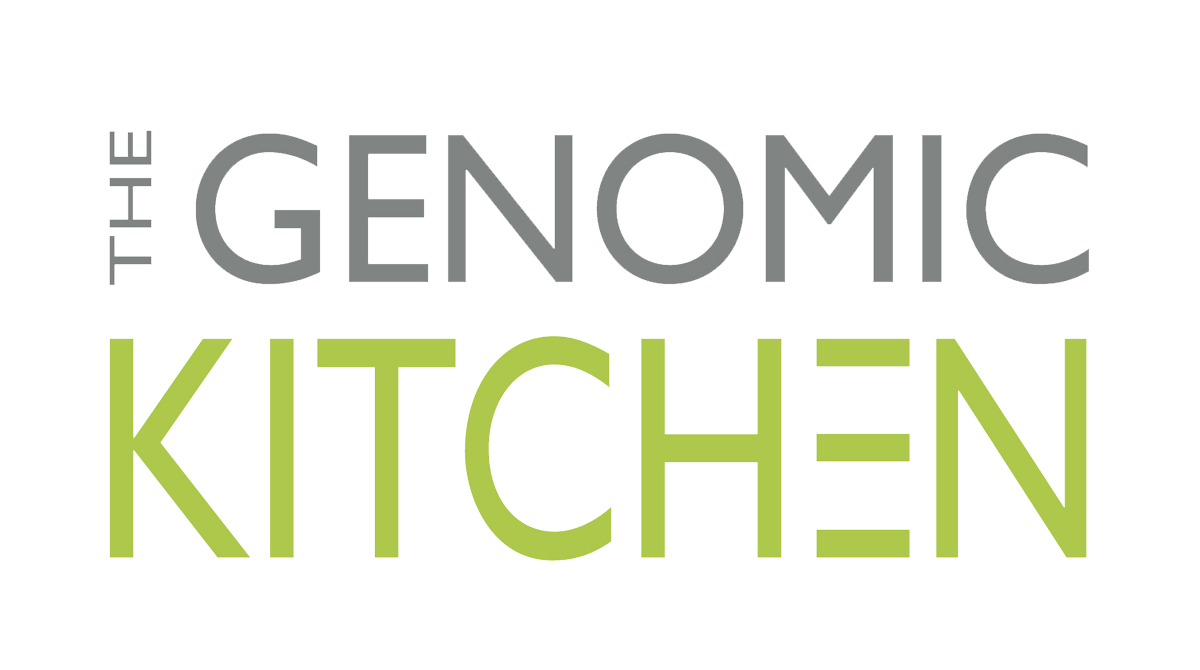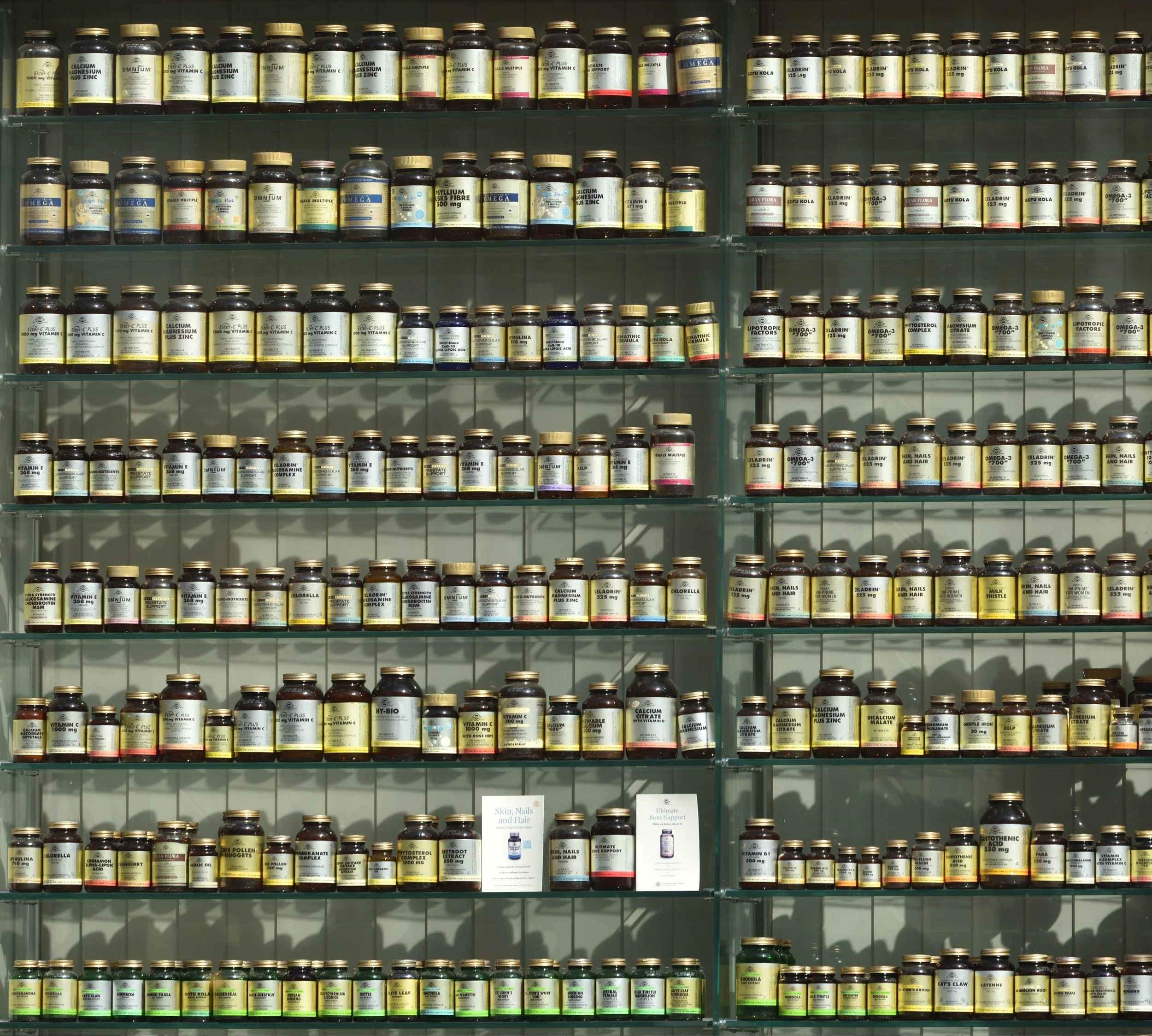Why a DNA Test is Important to Fine-tune Your Health
/Let’s be frank, before 23andme and Ancestry DNA, you probably weren’t talking too much about your DNA. For sure, you might have wondered about your family tree and done a bit of digging with some of your family photo albums and scrapbooks. But, did you make an appointment with your doctor knowing why a DNA test is important? Did you know how it can help to fine-tune your health?
Not only was a DNA test for your health not possible until the most recent years but if you’re like me, you might have been too frightened to ask. Or even knew what to ask! After all, don’t these DNA or “genetic” tests uncover your potential for early demise?
In truth, doctors have long used DNA tests to evaluate existing or potential genetic mutations such as cystic fibrosis. These kinds of genetic mutations occur in less than 1% of the population. These rare mutations lead to health conditions that are usually fatal, and early in life.
Who wants to discover that?
But why a DNA test is important isn't just because of gene mutations. The new player on the market is a test that provides personalized insights that help you thrive--not predict your early demise. We call this form of DNA test genomics and it's changing the way we understand medicine, nutrition, and more importantly, YOU.
In this article, I will discuss what the “genomic” DNA test is and how it provides a framework for health for the rest of your life. Importantly, I will help you decide how to get the right test and the right individual to help you interpret the results and put them into action.
For complete transparency, I assure you that the opinions expressed in this article are 100% my own and are not swayed by a promotional affiliation or arrangement with any specific genomic testing company.
Let’s get started.
How Your Genes Determine Your Unique Blueprint
We all have genes made from DNA. The role genes play is to make proteins. Proteins are the structural framework for your body. They form your muscles and bones, for example.
Proteins are also the master “doers” in your body, akin to the plumbers, carpenters, electricians, drywallers, framers, and roofers that assemble buildings. A building that has a frame is simply a frame until those construction experts put all the pieces together.
It's the same with your proteins. They're essential to life. They get the work of your body done.
Each of us is unique. We have different eye colors and hair curliness. What makes these differences are variations on our genes called SNPs, or single nucleotide polymorphisms.
Unlike a gene mutation, gene SNPs are not fatal. In fact, they're normal. Genomics is the study of genes and those gene variants. Genomic information, which you get from a genomic test (and why a DNA test is important), tells us which gene variants you have and their impact in your body.
Knowing the pattern of SNPs in YOUR body is the true power of genomic information--and why a DNA test is important.
Some SNPs are highly beneficial. One might tell us, perhaps, that you will never have blood pressure issues providing you keep active and eat well. Other SNPs may suggest those salty snacks you love so much may not be the best choice for you.
The most important thing to remember about gene variations is that one makes little difference. However, a series of them in a specific pathway, let’s say how your body handles carbohydrates or saturated fats, does make a difference.
Your pattern of SNPs is truly different from your siblings, your parents, and most definitely your best friend or neighbor. These unique patterns explain why you can run every day and eat the pasta that you love. Your blood sugars and weight have been the same for years. Your sibling works out with you and has the same love of pasta, and they experience yo-yo weight fluctuations. Your gene variations are not the same as your sibling. YOU are a reflection of your unique gene SNP patterns and knowing your SNPs is the power.
This is why a DNA test is important.
How Results from YOUR DNA Test describe YOUR Health
Genomic testing information is one of the best tools I've ever had in my nutrition toolbox.
I was trained conventionally as a dietitian. This means that I learned about carbs, fat, and protein. I learned how to construct nutrition advice based on percentages of carbohydrate and fat. I can check that you get a well-rounded diet to ensure you consume the vitamins, minerals, and fiber you need.
Based on guidance from leading health organizations like the American Heart Association, American Cancer Society, and the American Diabetes Association, I can slant my nutrition advice to fit into protocols that were deemed fit for managing heart disease, congestive heart failure, preventing cancer and diabetes, etc. Of course, I would look at what you ate and your lab data to fine-tune my advice.
I didn’t find it very satisfactory.
I am sure my clients didn’t either.
Fast forward a couple of decades into the era of genomic medicine. This is where my training in nutritional biochemistry started to count.
Instead of more standardized recommendations, I learned how gene variations change the efficiency of the proteins they produced. When genes produce a series of proteins working in harmony with each other, your health outcomes are optimized. It's rare that you have a perfect set of harmonious proteins, although I have seen patients with very favorable gene variations.
When your genes produce a series of under-performing proteins, or what I call one or more “slacker” proteins in certain pathways in your body, they can be more problematic. Like trying to ride or drive with a flat tire. Examples are trouble managing your weight, being bothered by bouts of anxiety or insomnia, borderline high blood pressure, borderline diabetes, migraines, or persistent sports injuries, to name a few.
The power of genomic testing (and why a DNA test is important) is brought to life when a trained clinician compares your gene SNP patterns to your health issues and goals. Using your very own gene patterns as a foundation, skillfully trained clinicians create a highly personalized plan that works uniquely for you. This is a far cry from generalized recommendations or the latest diet fad or food that's “good for you.”
You can see why I jumped on board. Genomic test information is the best tool I have ever had, and probably ever will, in my nutrition toolbox.
How to Choose the Right Genomic DNA Test
Here is where I want you to listen closely.
I have spent a LOT of time over the last three years looking at genomic tests. I have talked to many CEOs, lab directors, and clinical support teams of genomic testing companies around the world. It's the wild west out there. We're in a genomic gold rush and there are a lot of companies involved in the journey.
Let me help you decide which DNA test is right for you. Some of them don't look at everything you might need to know and can be a waste of money, especially if you have ongoing health issues. Here are my 11 recommendations.
1. What do they do with your personal data?
YOUR data should be safe and secured at all times and used to improve your health goals. Be informed.
Before you purchase a DNA test, familiarize yourself with the company’s policy on data privacy and security. When you purchase it (or your healthcare provider orders it for you), are you consenting for the company to sell your data? Use it for research? Or somehow profit from it? What does the company do with your data? Are they a true lab or just a software company?
Before you buy a test, make sure you're happy with their answers to all of these questions.
2. How to best interpret your results
23andme data is a valuable source of information if you want to learn about your ancestry. It's a whole other level if you want to use this data to understand your health picture. In order to do this, you need to know where to upload your raw data file and who can help you understand what the ensuing report means!
a) For a few dollars, you can certainly upload your raw data to a translation software. The next step is to know how to read the report it spits out. If you're asking questions like, “I am homozygous MTHFR and heterozygous COMT. Which supplement should I take?” you're not alone. There are many individuals desperately wandering around online health discussion forums asking what their reports mean. It's difficult to read the red, yellow, and green report. Most of the time a doctor or other clinician cannot either. It takes a lot of training!
b) There are reputable genomic testing companies that can make sense of 23andme data and translate it into reports. Guess what? You still need a clinician to put all the pieces together. Someone who can explain the nuances and do the follow-up to determine if that pesky homozygous MTHFR gene (just an example) actually impacts you.
c) There is a dearth of trained clinicians worldwide that can help you with 23andme interpretation. See #5.
3. Don’t buy reports from companies who suggest supplements in their reports
a) I repeat, do NOT do this.
b) This is suggested selling without validating whether, in fact, you need that supplement.
i) Supplements are not always benign. At certain doses and in certain forms that can potentially have a pharmacological effect.
iii) They can create biological imbalances that make you feel unwell.
iv) You may not even need a supplement. Just because you have one or more gene variants that appear be working less efficiently, it does not mean that they are.
v) Before you dash off to buy a suggested supplement, get validation that you nutritionally need one (or some) by asking doctor, dietitian or other licensed healthcare professional to order a lab test (different from a DNA test).
vi) Read the above list again.
4. Lifestyle-oriented genomic test versus clinically-focused genomics
a) Genomic information costs money. I don’t recommend you part with your money until you know what you want for your money. Currently, I know of ONE good company producing reports that provide scientifically-informed generalized guidance about nutrients, your diet, and appropriate exercise recommendations.
In other words, direct-to-consumer, versus direct to clinician. This company does not upsell supplements or meal plans. They don't offer to fix your health problems. They know their boundaries.
They do offer consultation to help you interpret your results if you want to. You pay for what you want. This is ethical. If you're looking to get a little more insight into how to tweak your food and exercise, this company is a good choice. Are there others out there? Maybe.
I make my recommendations based on what I know, who I talk to, and the quality of the product for the audience it's intended for.
5. What to do if you have ongoing health issues
a) If you have persistent health issues, you MUST choose a company that either sells directly to clinicians or makes clinician interpretation a part of their services. Why?
i) These companies specifically produce reports that go far deeper than whether you need more vitamin B6 or Vitamin D.
ii) You might be able to make sense of some of their explanations. But, these companies exist because their reports are very comprehensive. They look at gene variants across many biochemical cycles and processes. Guess what. To fully understand these reports, you need a clinician who is trained to interpret them.
6. Do not buy from a company selling reports that look at single health issues such as weight loss
i) Health is not informed by a single gene or even a subset of genes. Your body and potential health issues are informed by a series of gene SNPs that can operate in different pathways. This means how your body handles things like inflammation, oxidative stress, detoxification, and absorption can impact your health. The fact that you have a gene SNP in the FTO gene does NOT mean that you will be overweight. Trained clinicians look at the big picture of how your body operates. When different biochemical cycles are “out of whack,” this imbalance might show up in strange ways. For example, it might mean an inability to lose weight, gain weight, or sleep at night, to name a few.
ii) You need a genomic report that looks at a cross sample of many genes to determine your health picture. Weight issues are determined by a series of imbalances (and lifestyle choices) and not simply a handful of genes.
7. Before you press the “Buy” button, find a clinician who can help you understand your report
a) If you cannot find a clinician, or the company does not offer a network of trained clinicians, don’t buy the report.
b) How would you feel if you spent good money but only got half the picture? Too often I am contacted by individuals who bought reports and are looking for me to interpret them. Too often, the gene information provided paints one part of a clinician picture.
The result: I have to advise them that I can create a partial picture, but I need more information to provide them with the insights they're looking for. In other words, I have to ask them to spend more money to get the gene information needed to create a report that's actionable.
Can you imagine how disappointed they are? They have a minimal return on their investment. As a clinician, it is important that I provide a complete and valid analysis of a person’s DNA. I would not accept money for half a service, and neither should you.
8. When you find a clinician who can interpret your report, ask them about their training
a) Trained clinicians have a degree in nutrition science or have robust training in nutritional biochemistry, nutrigenomics, and nutrigenetics. Genomics is the science of how genes behave in the human body. Nutrigenomics is the science of how nutrients and bioactives influence gene behavior and activity in the body--how they shape how genes are turned on and off. Nutrigenetics is the science of how genes impact how your body utilizes information from food. To interpret your report and provide you with a plan that works for your unique gene patterns (I call this your gene blueprint), you need to work with clinicians who have this training.
b) Reputable testing companies provide robust and extensive training in these disciplines. In fact, they often require it to allow clinicians to interpret their reports. This is called integrity. This also reinforces why I recommend you only purchase DNA testing from companies who have a robust clinical network and provide in-depth training for clinicians. I cannot emphasize this enough for you.
c) Before you press “Buy,” ask the company for the name of a clinician who is trained to help you.
9. Don’t beat up your doctor, dietitian, naturopath, or other licensed clinician when they say they cannot interpret your report
a) Genomics is the new kid on the block. It takes many months, if not years, of training to become proficient at analyzing results. Most clinicians are busy seeing individuals like you! The training required to interpret a genomic report is significant.
Most clinicians are doing that training after hours, often until 10 pm at night, after a full day of clinical work seeing individuals. They're not taking a sabbatical to learn. They are adding on learning at the end of a long day, maybe during family time or on the weekend. Give them a chance to get up to speed.
After all, they are being asked to relearn the same biochemistry that they learned about in school, many years ago. And if you ever studied biochemistry, it's hard science, yet beautiful science. It takes time to get proficient in a difficult science that is informing the brilliant new science of genomics.
10. How much should you pay for a DNA test?
a) Each company sets a price point based on what it takes to produce their reports. Robust reports cost more than smaller reports. The more genes they report on, the more a report costs. This is an honest reflection of the cost of doing business.
b) That being said, you should not be paying $1000s for a report! Worldwide, I am seeing a general figure of $279-$399 (US) for excellent clinically relevant reports. This may vary depending on your country and the company.
c) Now, this is the cost of just the report. Companies need to recoup the considerable investment in the research to produce the reports and the labs to process your DNA swab (the swab contains your DNA data). Don’t beat companies up for charging to do business!
d) Remember that I am referring to genomic testing which focuses on many genes. This is different from a genetic test which typically focuses on one or a minimal number of very specific genes to provide insights on a serious health issue such as cystic fibrosis. Here you want to consult with your physician for information.
11. A genomic test does not include the cost of a clinician’s time
a) Genomic testing is an investment in your current and future health. This is detailed information that requires time from a clinician to evaluate the gene information and look for patterns that tell your story. In my experience, this can take up to 2 hours to properly formulate your personal storyboard.
b) Once your storyboard (report) is formulated, expect to spend 60-90 minutes with a clinician to go through it and create next steps for you.
c) Often, we recommend additional lab testing to validate the efficiency or inefficiencies of your genes.
d) Expect at least one follow-up visit to fine-tune your plan and perhaps 1-2 more visits depending on the complexity of the issues your clinician uncovers.
e) If you're going to make the investment in a DNA test, be prepared to go all the way and invest more of your time. I promise it's worth it.
The Promise of DNA (Genomic) Tests
In my career, I can tell you that the ability to use genomic information to create a health journey for life has been the most powerful tool I have ever touched and probably will ever touch. YOUR genes never lie. I'm able to take information from your report and start to tell the story of who you are.
I can gather insights into why you may feel the way you do. Time after time, clients tell me that genomics explains their life. It provides a form of relief. An understanding that “it’s not just me imagining these things. I am doing everything right, but I can’t seem to get to well.”
I work with brilliant clinicians who can form an opinion of what's happening to an individual which is then validated by a DNA test. In other words, we match a health history with a DNA report and laboratory information, and a story emerges. That story is YOU. That is why a DNA test is important.
Medicine has finally given us a set of tools to start to unravel the complexities of health issues that affect you. More importantly, we can create a pathway to health that is built exclusively around the story that is told by your genes. This is personalized medicine, based on an "N of 1." Where N is you. And number 1 is, you guessed it, YOU.
What you can do now
Check out our Express Course
Learn more about eating for your genes by downloading our QuickStart Guide.
Enroll in our Genomic Kitchen Express Course ( 4 hours self-paced, online, forever access). Learn how to select, prepare and cook with food that connects to your genes - with or without a genomic test.
Sign up for our newsletter to learn more about your food-gene conversation, recipes, opportunities to learn












